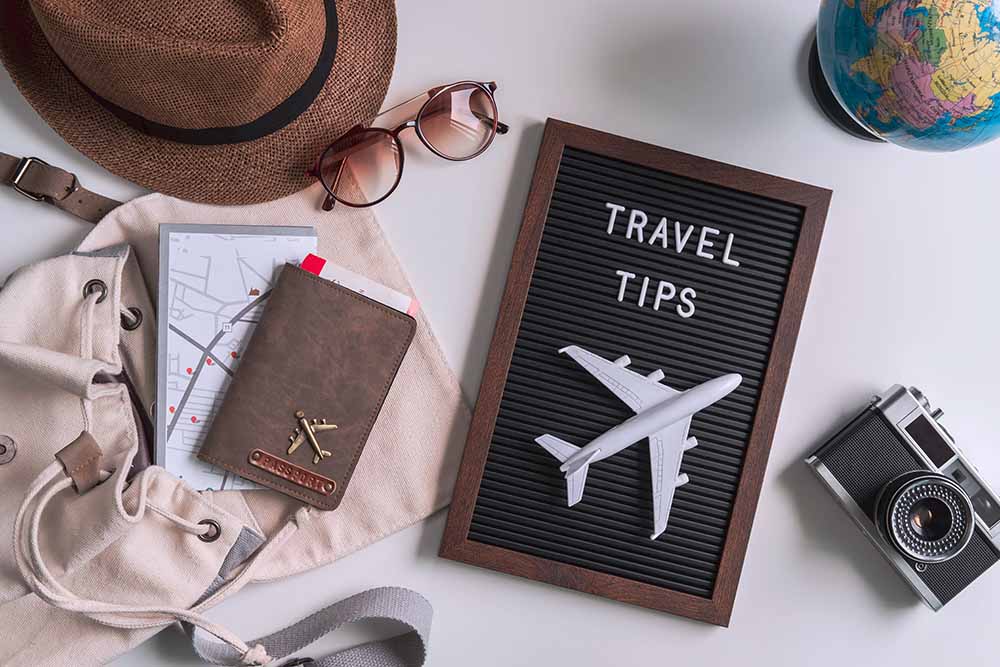Planning a business trip is not always fun and games; there’s a lot to think about. Whether you’re a small business owner, a regular business traveler or a travel manager, it’s sometimes hard to know where to start. You have to deal with searching for the best travel deals, planning the ideal itinerary, and if you’re the one traveling, make a packing list.
Dealing with all that goes into planning business trips for yourself, your boss and your company is no easy task, which is why we’ve created this Business Trip 101 to help you get going. Travel easier and be sure how to plan a business trip after reading this guide.
Get going, travel easier
The more efficient your planning is, the more productive you can be on your business trips as a regular business traveler because you will have a clear agenda and know where your priorities lie. When it comes to corporate travel there is a lot to keep in mind such as flight and hotel bookings, scheduling, ground transportation, checked baggage vs. hand luggage and everyone’s agendas. The more organized you are, the better yours and your team’s results will be.
How to plan a business trip
Planning a business trip can take a lot of work, and part of that is making sure you can balance the business traveler’s mental health (or if you’re the one planning, you have your own wellbeing in mind) as well as the physical needs with the objectives of the company. This is why it’s so important to start with a goal. This way you can see if your agenda is feasible and whether it helps work towards achieving a goal while also following a rhythm that is feasible for the person doing the traveling. If you can, try to have a master planning list that allows you to optimize the time that goes into planning, and then you can more easily replicate for future trips.
It’s also a good idea to have it clearly established who’s in charge of booking business travel.
1. Start with a goal
If you are looking for how to plan a business trip and stay efficient, we suggest you start with a goal for your business trip. Figure out what you want to accomplish and why you must take a trip to do so. With a goal in place it will be easier to figure out your objectives and then track KPIs related to the trip. KPIs could be the number of new clients onboarded, number of new prospects, number of sales contacts, or goals like designing the Marketing Plan for the following year or simply teambuilding, depending of course on the goal of your business trip.
If you are a regular business traveler traveling for a sales meeting, why not set up several meetings with different potential clients and current clients in the same area to avoid having to travel so frequently? This way you can focus on quality business trips over quantity, which makes them more productive and you will experience less travel fatigue, especially for regular business travelers.
2. Plan travel once and repeat
Sometimes the biggest part of getting anything done is devising a plan. So start your business trip planning by coming up with a travel plan that is easily replicable for future trips. Start by making a list of everything that you need to do to plan and turn it into a checklist. Business travel like any project needs a roadmap to get anything accomplished.
Need a helping hand to get started? Download our checklist!
Download checklist3. Create a master business trip itinerary
Creating standard itinerary for a business trip oftentimes will fall in the hands of an administrative or HR professional, but if one isn’t provided for you, there are some important details you must consider jotting down such as transportation times and details, travel reservation and confirmation numbers, addresses, emergency contact information, check in and check out times for the hotel, day-to-day schedule details (such as what time do meetings start, where and how long do they go), as well as contact information for the people you will be meeting with.
It may seem overwhelming at first but once you have a master business trip itinerary outline it will be easily replicable for your next trip. If you work with a travel management company like GetGoing, you can store all your itineraries and travel documents in one place making managing your business trips as easy as the snap of a finger.
4. Store all business trip-related documents in one place
As we’ve mentioned, when you work with a travel management company, all of your business and trip-related documents will be stored in one place on the web app, including important contact information for travelers, hotel information, emergency contacts, and a support phone number to call in case of issues.
If you are booking all your regular business trips on your own without the support of a TMC, then be sure to have a spreadsheet and shared drive dedicated to your travel plans and itineraries. It will be easier to keep track of everything and ensure nothing gets missed. If you have a business travel and expense management solution, you can keep track of receipts, travel itineraries, and so much more all in one place.
Packing and trip lists: lists are your friend
When it comes time to pack for your business trip there is nothing more important than having a list ready with everything you need to start your business travel plans, especially if you’re a regular business traveler. That means having a running list of those elements that you can’t travel without like your passport or ID, your computer, a mouse, a pen and notebook, or your business cards.
Consult our ultimate packing list for more ideas about the travel essentials.
Make a list of all the travel extras
Extras can be things like checking a bag, traveling business class on a flight, purchasing an in-flight meal, having a driver pick you up, and more. The kinds of extras permitted might depend on your company’s travel policy. For example, taking a taxi instead of the bus to the airport may or not be allowed based on the budget per trip your company has in mind, so make sure to check with your travel manager, HR or office manager about what is and is not allowed.
Search for business travel deals
Finding business travel deals is perhaps the most important and time-consuming task when it comes to making your business travel arrangements. If your company doesn’t already work with a TMC, you may consider urging them to sign up for a corporate travel management solutions company who can help you find the best (and most convenient) travel deals.
Some other cheap travel hacks for regular business travelers are:
- Be flexible with dates
- Travel in the middle of the week instead of Monday or Friday.
- Consider traveling via a historically cheap destination to get to your final destination
- Go with budget flight options like RyanAir, EasyJet or Vueling
Business travel by flight
Business travel by flight is one of the hardest parts of booking a business trip. How can you find the most convenient and shortest route without having to pay an arm and a leg? There is also a fine balance between the amount of time you dedicate to searching for cheap flights and the amount you pay because after all time is money, so you don’t want to whittle away your time to spend a little less. Find out the top 10 flight apps to book your business trip.
It’s also hard to know, whether hand luggage is enough for you when traveling by air, whether it’s worth-it to book business or first class (and if your company even allows it). One of the most important things is to familiarize yourself with your company’s travel policy so you don’t find surprises when it comes time to having your travel approved.

Checked or hand luggage only: Is hand luggage enough for you when traveling by air?
So should you go with checked or hand luggage only? Is hand luggage enough for you when traveling by air? Our rule of thumb when is to ask yourself the following questions, which can help you decide whether hand luggage is enough or if you should consider fronting the extra bucks to check a bag:
- Is your meeting formal or informal? If it’s formal you may want to consider checking a bag so you can keep your suit or blouse from wrinkling.
- How many days are you traveling for? 1-4 days of informal business travel can easily be packed into hand luggage only. Beyond 5 days, it’s definitely worth checking a bag or if you have to deal with cold weather or different climates on the different stops in your trip.
- Will you be adding time on for bleisure or blended travel? If you decide to add in extra days either before or after your trip you may consider throwing in a bathing suit to hit the beach or the spa or some extra clothes that don’t necessarily scream “I’m on a business trip.”
- What kind of traveler are you? If you’re the kind of traveler that wants to throw in your rain boots and parka in case it rains when you’re traveling to Spain that has an average of 50 days of rain a year, then you might consider checking a bag. If you’re a “worst case scenario” type of traveler then just a carry-on will most likely never suffice.
Hotels for business travelers
Choosing the right hotels for regular business travelers is no easy decision. Breakfast or no breakfast? What kind of amenities are non-negotiable? Is it better to be close to the office or downtown? Should you choose a hotel just because they include airport pick-up? There are so many questions to ponder that we’re going to dedicate an exclusive post just to choosing hotels for business travelers. Stay tuned.
Use the right tools for booking hotels for your business trip
Kayak, Skyscanner, Google flights or Hopper are all great tools for your every day trip, but when it comes to business travel, you want a company like GetGoing travel management for businesses that will help optimize and streamline your booking process. The easier trip planning is, the less time you will have to spend planning and the more productive you can be in your daily job.
And that’s how you plan a business trip
Review and refine the process for planning a business trip. To do so, create a short survey that you can share with your team so you can evaluate how the trip went and assess whether the goals of the meeting were accomplished. This is an important step, especially when deciding whether to travel or not to travel for future trips. The more often you reach your goals and the more your goals are reliant on a trip to meet them, the more it makes sense to travel.

related article

